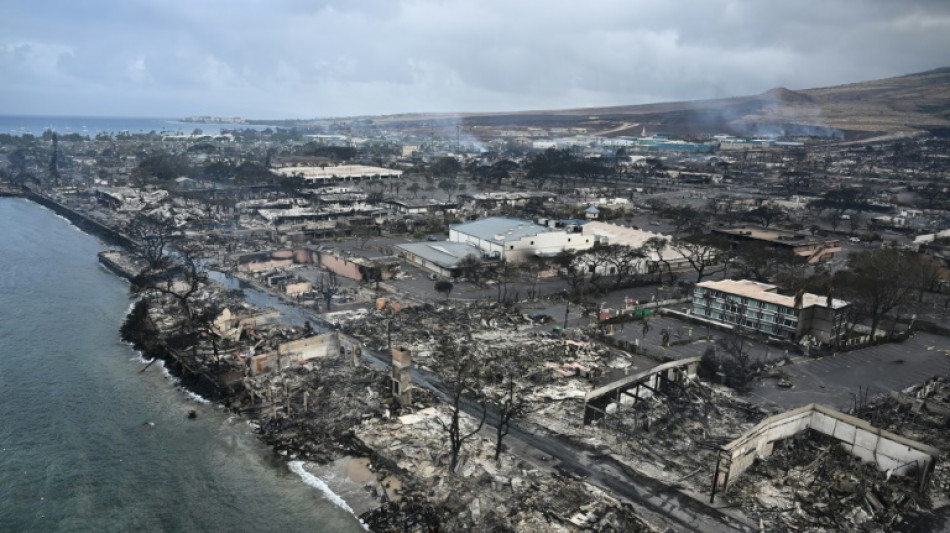Hawaii agrees to 'historic' settlement in youth climate case / Photo: Patrick T. Fallon - AFP/File
The US state of Hawaii has reached an historic agreement in response to litigation by youth activists, promising to speed up the de-carbonization of its transport sector to protect their right to a safe and healthy climate.
Thirteen young people from across the islands brought the case in June 2022, arguing that their constitutional rights to a life-sustaining climate were being violated. They asked the state government to take action to implement its goals of net negative emissions in the transport system by 2045.
"The passion demonstrated by these young people in advocating for a healthy, sustainable future for their generation and those to come, is laudable," said Governor Josh Green in a statement issued late Thursday after the two sides reached an agreement.
"This settlement informs how we as a state can best move forward to achieve life-sustaining goals and further, we can surely expect to see these and other youth in Hawaii continue to step up to build the type of future they desire."
The settlement was announced just days before the case was set to head to trial on Monday, with the youths represented by attorneys for the nonprofits Earthjustice and Our Children's Trust.
Navahine v. Hawaii Department of Transportation (DOT) was the world's first youth-led constitutional climate case seeking to address climate pollution from the transportation sector.
Many of the plaintiffs were Native Hawaiian youths experiencing climate change harms including sea level rise, drought, floods and fires, which were threatening their lives and ability to carry out cultural practices, such as growing the karo plant, fishing, and gathering.
Under the agreement, the Hawaii DOT will be required to take steps including establishing a greenhouse gas reduction plan within one year and make ambitious investments in clean transportation infrastructure, including completing the pedestrian, bicycle, and transit networks in five years.
A minimum of $40 million will be dedicated to expanding the public electric vehicle charging network by 2030, while the department's budgeting process will prioritize greenhouse gas reduction, and a volunteer youth council will advise the department on its climate commitments.
"I am so proud of all the hard work to get us to this historic moment," said youth plaintiff Navahine F.
"We got what we came for, and we got it faster than we expected. Mai kuhihewa (make no mistake), young people have the power to make a difference for their futures."
Last August, a court in the US state of Montana ruled in favor of a group of youths who accused the state of violating their rights to a clean environment.
But another high profile lawsuit brought by a group of California children who claimed the US federal government was harming them by failing to clamp down on pollution was tossed out by a judge in May this year.
G.Luthra--BD
